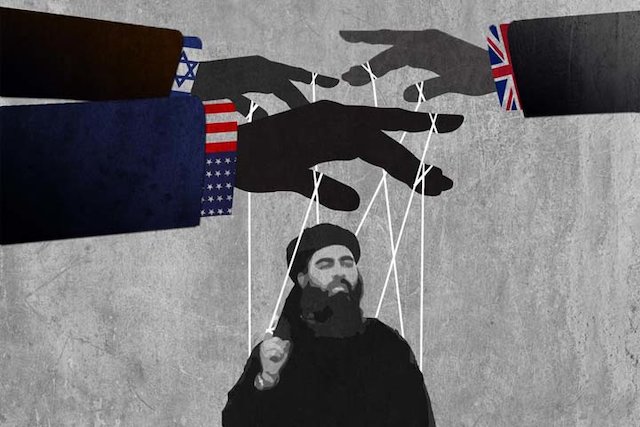
Speaking to RT on the advance of ISIS militants from Mosul toward Palmyra, Virginia Senator Richard Black (R) expressed doubt that the US-led coalition could have overlooked such a regrouping, pointing to possible interests of the US and regional players.
Given that the territory between areas occupied by Islamic State (IS, formerly ISIS/ISIL) and Palmyra is a “very barren” rocky desert, “it is unconceivable that the American-led collation could not have seen this massive army moving towards Palmyra,” Senator Black told RT.
“I was surprised that ISIS was able to attack Palmyra. It’s important to recognize that the distance from ISIS-held territory [to] Palmyra is approximately 100 miles,” added the senator, who has repeatedly voiced support for Syrian President Bashar Assad in battling the jihadists.
Read more
Russian Foreign Minister Sergei Lavrov attends a press conference in Belgrade, Serbia, December 12, 2016.
The fact that the US-led coalition seemingly turned a blind eye to the imminent terrorist threat to the UNESCO world heritage site is not a coincidence, he argues, but rather a part of the foreign policy strategy employed by the current White House administration towards Islamic State.
“Unfortunately, I believe, under the Obama administration, I think there have been great deal of coordination between terrorist forces and the US-led coalition,” Black said.
While the US, as well as other western countries and major regional players, do not share the same goals as the terrorists, they have been seemingly sparing Islamic State if airstrikes against the terrorist group could have resulted in disadvantage to Turkey, the key NATO member in the region and a US ally, which Black alleges, has engaged in economic relations with terrorists.
“There [the terrorists] have not been loved by anyone, but they have been a major trading partner of Turkey, and the United States withheld any attack when they first seized Palmyra travelling a hundred miles over open territory, and, I confirm, there was not a single bomb dropped by the American-led coalition,” he said.
This very selective approach to fighting terrorists gives reason to suggest that the US-led coalition is battling jihadists only when it does not interfere with the narrow interests of its members, Black suggests, dubbing the coalition’s efforts under such circumstances as “disastrously unproductive.”
“I think ISIS is often used as a tool between Turkey and the United States and as long as they are useful to one of those parties they are protected and when they are not useful they are not protected,” Black said, arguing that ISIS served as “tool of Turkey, Saudi Arabia, Qatar, the United States and NATO forces…from the very beginning” of the conflict in Syria.
At the same time, the senator commended the US-led offensive in Iraq, which has centered on liberating its second largest city, Mosul, from militants, saying that the coalition was “doing some very good work in Mosul” and seems to be genially poised to “drive ISIS forces from Mosul.”
However, US President Barack Obama’s recent decision to lift restrictions on the delivery of weapons to “foreign forces, irregular forces, groups or individuals,” who are supported by US military in Syria, plays into the hands of terrorists and looks like “a desperate last attempt” by the outgoing administration, Black said.
The senator said that the looming change of commander-in-chief in the United States will be marked by a U-turn in Syria, with the US cutting all its ties with militants.
“When Donald Trump comes in, the support is going to be cut for the terrorists. We are not going on to the side of the terrorists anymore,” he said.
Sen. Black has been known as a fierce critic of the current US policy towards Syria, calling it “insane” in comments to the Washington Post in April, when he argued that “it is within our power” to stop the bloodshed.
In April, Black traveled to Palmyra and met with Syrian government officials. He has said that Syria being entrapped in the military conflict is not the result of domestic issues but of a plot contrived by foreign intelligence, including that of the western countries, Saudi Arabia and Turkey.
“The government and people in Syria want peace, but regional countries don’t,” Black told Homs Governor Talal Barazi at the time, as cited by the Syria Times.
